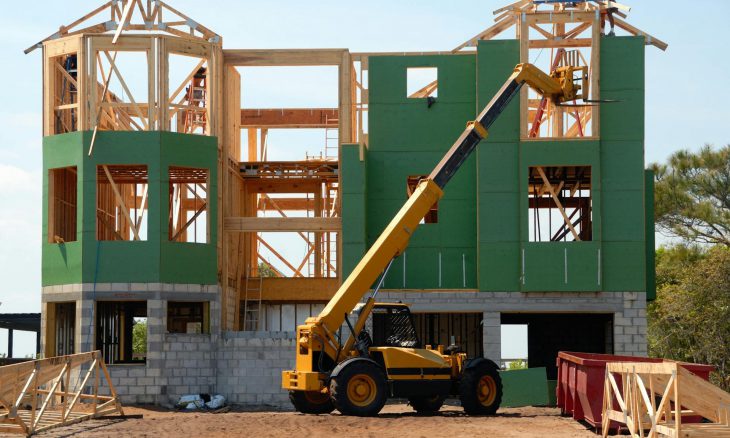Will the next generation of Americans have a chance at home ownership?
PRAY FIRST for our nation’s leaders as they grapple with the ongoing housing crisis.
Trust in him at all times, O people; pour out your heart before him; God is a refuge for us. Selah – Psalm 62:80
The recent results of the ruling with the National Association of Realtors highlight the housing crisis in the United States, which has reached a critical juncture, affecting millions of individuals and families. As home prices soar, wages struggle to keep pace, leaving many Americans unable to afford a place to call their own.
The Widening Gap
Estimates from as recent as 2022 indicated that our country needs four to five million more available homes on the market. The demand has caused home prices to skyrocket, outpacing wage growth in 80% of U.S. markets. According to recent data, the median home price has surged 30% in the last five years alone. With home price increases far outpacing income increases, the dream of homeownership may seem like an elusive mirage to many.
Rent pricing has also increased, and over 40% of renters are spending more than 30% of their income on rent. With limited savings options, it has become increasingly untenable for renters to become buyers.
Much of the demand is partially credited to the work-from-home boom during the Covid-19 pandemic. As Americans needed more space for home offices and didn’t need to live close to their work office, they moved to the suburbs, and demand surged. Meanwhile, supply decreased due to labor shortages and supply chain disruption as fewer homes were built.
Supply and Demand Manipulation
Large organizations, including real estate investment trusts (REITs) and hedge funds, have entered the housing market with voracity. They purchase homes in bulk, driving up prices and creating artificial scarcity. In some areas, a house that would have sold for $250,000 before 2020 is now selling for three times that value. According to the U.S. Census Bureau, there are approximately 15.1 million vacant homes, accounting for 10.5% of all housing.
The consequences of this corporate takeover extend beyond individual homeowners. Communities suffer as well. As house values increase, taxes on those houses do, too. Long-standing homeowners are often forced to sell, and neighborhoods erode as families cannot sustain themselves in them.
Homeless Living
As many as 40-60% of people experiencing homelessness have a job, but housing is unaffordable. The United States Interagency Council on Homelessness estimates that at minimum wage in many top markets, people must work 86 hours a week to afford a one-bedroom. Most cities have options for those finding themselves without a home, but they are temporary and can be unsafe. Some homeless who are employed full-time have turned to living out of their cars.
In 2023 and 2024 alone, companies like GM, Amazon, Telsa, and Chrysler were locked in pay disputes because significant portions of their job force could not afford to buy or rent a living space. Many of these employees lived in their cars and had to seek suitable parking lots to stay in every night.
This has led to local governments becoming locked in legal disputes where one side wants to ban residents from living in their vehicles, and the other seeks to allow more protections for them due to the inability to sustain a workforce without those employees.
Inflation
While the Federal Reserve aims to stabilize the economy, its decisions have unintended consequences. Low-interest rates encourage borrowing, but they historically also inflate housing prices. Currently, the housing market is seeing the worst of both worlds. Despite the Federal Reserve’s best efforts, housing prices are still inflated, while interest rates are high due to inflation. This means that both the overall housing cost and the monthly mortgage rate price out many Americans.
The federal government acknowledges the crisis and has taken steps to address it. Initiatives include tax incentives for first-time homebuyers, funding for affordable housing projects, and regulatory scrutiny of corporate buyers. However, critics argue that these measures resemble applying band-aids to a gaping wound. The systemic issues require bolder action, such as comprehensive housing reform and increased investment in affordable housing. Some also suggest restrictions on corporations who bulk purchase homes.
What is the Godly Response?
As Christians, we are called to love our neighbors as ourselves. The housing crisis presents a unique opportunity to live out this commandment. Churches nationwide are opening their doors to provide temporary shelter, organize food drives, and get involved in local governments for policy changes. They recognize that compassion isn’t a passive sentiment but an active force driving change.
Christian organizations often collaborate with local nonprofits, pooling resources to create affordable housing solutions. They build tiny homes, renovate abandoned properties, and offer financial literacy programs.
We must remember to be compassionate as we grapple with rising costs, corporate greed, and bureaucratic hurdles. The housing crisis isn’t an abstract issue—it’s reality millions face. Pray for those in this situation now, as well as your neighbors, family, and coworkers, and pray for your local and federal leaders. These issues are difficult and have complex solutions. It is only through seeking God’s wisdom and through His power that America can overcome them.
HOW THEN SHOULD WE PRAY:
— Pray for God’s hand of grace and provision to be with the many Americans who are striving to afford housing while struggling to pay their bills month-to-month. Each will be like a hiding place from the wind, a shelter from the storm, like streams of water in a dry place, like the shade of a great rock in a weary land. Isaiah 32:2
— Pray for leaders at federal, state, and local offices as they look for ways to address the economic needs of the American people during these trying times. God is our refuge and strength, a very present help in trouble. Psalm 46:1
CONSIDER THESE ITEMS FOR PRAYER:
- Pray for those in the Federal Reserve, as their decisions directly impact the housing market and economy.
- Pray for God to guide those in state and local government who create policies to enable new housing developments to meet the needs of their citizens.
- Pray for churches that are working to meet the needs of the homeless and to alleviate the struggles of those in need.
- Pray for Americans as seek to live out the nation’s ideas of life, liberty, and the pursuit of happiness.
Sources: Washington Post, New York Times, The Guardian, U.S. Census Bureau, AP News, Rueters, Treasury Department, Deparment of Housing and Urban Development









